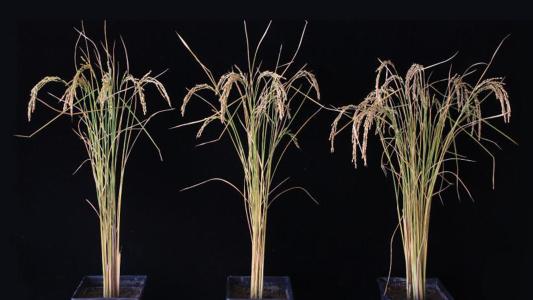USC researchers have reversed damage in the ears of mice by turning on a regenerative ability they have as newborns — and they think it might allow us to reverse permanent hearing loss in humans, too.
Why it matters: Permanent hearing loss is a common side effect of getting older, affecting more than 60% of people who reach retirement age, according to USC researcher Neil Segil.
Reversing hearing loss could benefit tens of millions of people, potentially improving their quality of life and allowing them to live independently, longer.
Newborn mice have a special power.
Hairy situation: The inner ear contains two types of sensory cells. There are “hair cells,” which are hair-like (surprise) and receive sound vibrations, and there are also supporting cells, which play a role in the inner ear’s structure and function.
Hair cells are delicate and can be damaged by loud noises, infections, certain drugs, and aging in general. The death of a single hair cell can affect your hearing, and once a hair cell is gone, it’s gone for good — or so we’ve always thought.
How it works: Newborn mice have a special power. For about a week after they’re born, mice can reverse ear damage by transforming supporting cells into hair cells — a process called “transdifferentiation.”
In a new study, the USC researchers determined that a molecule called H3K4me1 is the key to this regenerative ability. It keeps the genes for hair cells “primed” inside supporting cells — like players on the bench, ready to jump into the game.
Humans might be capable of reversing hearing loss, too, but lose the ability before birth.
If their hair cells are damaged, nearby supporting cells transform and replace them. But by the time the mice are a week old, they lose this molecule — and the ability to repair hearing loss.
However, giving the mice a drug that extended the presence of H3K4me1 also extended the window for hair cell regeneration.
From mice to men: The researchers suspect that humans might also be capable of reversing hearing loss through transdifferentiation, but we lose the ability before we’re even born.
If they’re right — still a big if — it might be possible to trigger new hair cell growth in our ears and restore hearing ability.
“Our study raises the possibility of using therapeutic drugs, gene editing, or other strategies to make epigenetic modifications that tap into the latent regenerative capacity of inner ear cells as a way to restore hearing,” USC’s Segil said.
Beyond sound: Segil also speculated that, one day, this technique could even be used to regenerate other body parts.
“Similar epigenetic modifications may also prove useful in other non-regenerating tissues, such as the retina, kidney, lung, and heart,” he said.
We’d love to hear from you! If you have a comment about this article or if you have a tip for a future Freethink story, please email us at tips@freethink.com.
